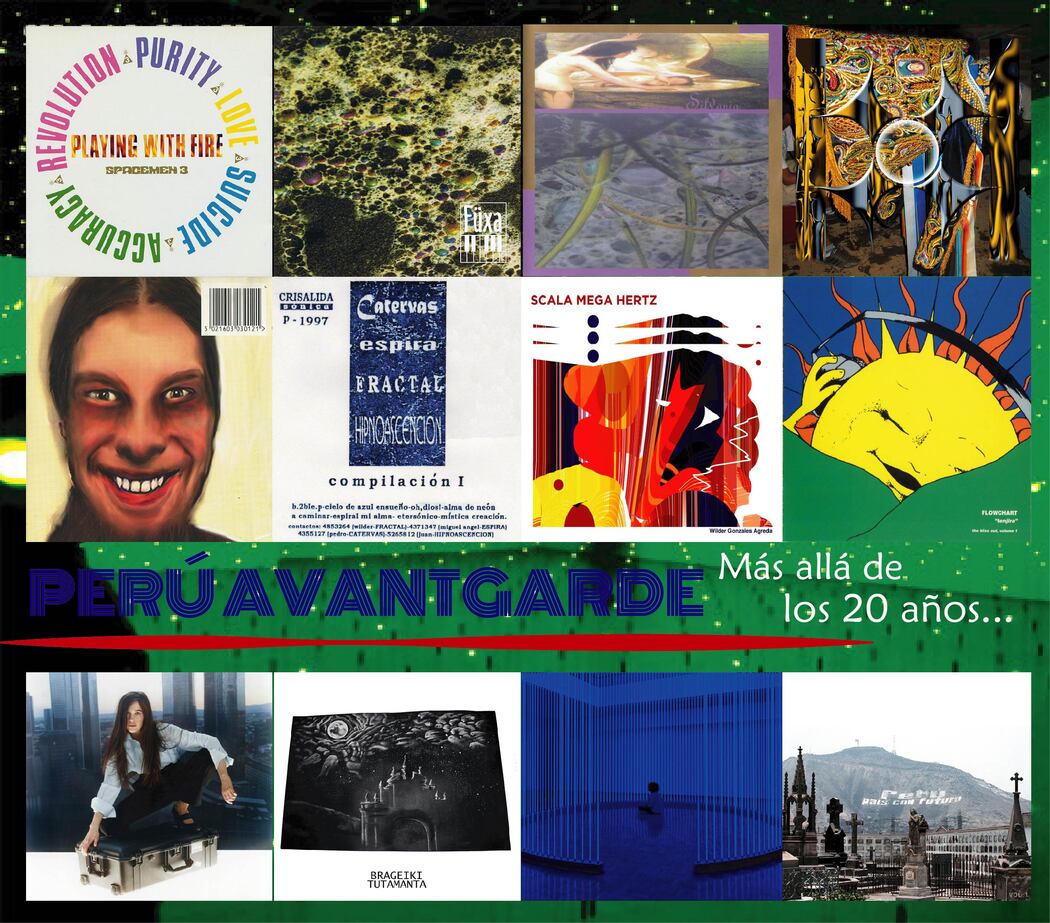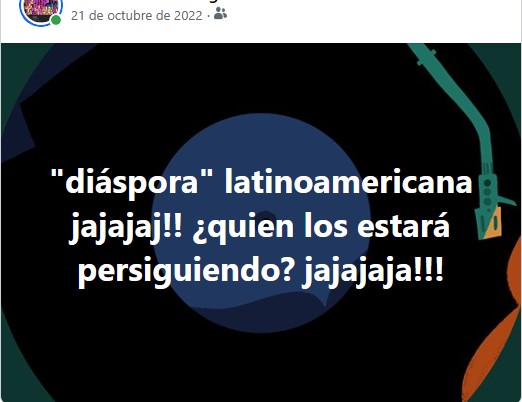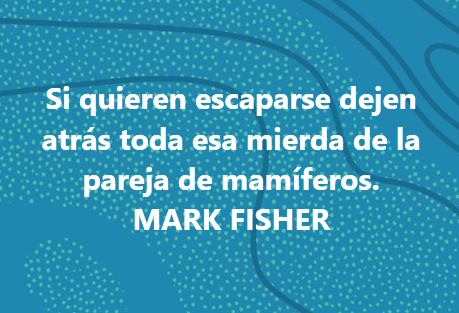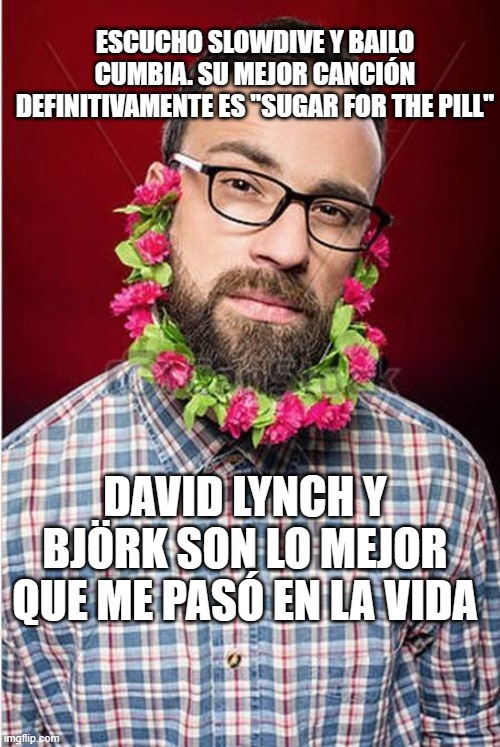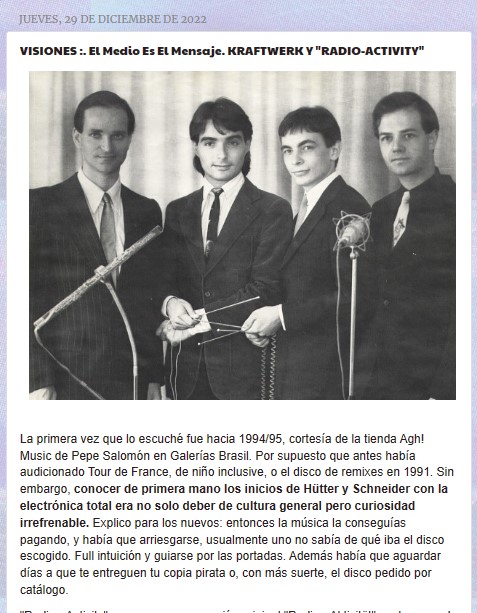"Yo era uno de esos chicos que pensaban que estaríamos haciendo viajes a la Luna ya..." declaró alguna vez Mark Nelson en los 90 cuando junto a sus hermanos Robert Donne y Carter Brown conformaba uno de los proyectos más importantes de la avanzada post-rocker americana: LABRADFORD. Una década re-voluptuosa en la que la música aún era sujeto de transgresiones e innovaciones. El discurso de Labradford recurría a teclados, bajo y guitarra con los que construían paisajes aislacionistas y canciones espaciales que alguna vez fueran definidas como un cruce entre el "Playing With Fire" de Spacemen 3 y el "Faith" de The Cure. Hay de eso y más en el sonido de los de Richmond: krautrock, música concreta, psicodelia, ruidismo, folk... Post-rock en estado auroral, lejos de la bastardización llevada a cabo por la industria, sellos y prensa. Algo que hoy vemos a diario con géneros y artistas que se gentrifican y venden convenientemente pasteurizados.
25 años después de su debut, el abrecaminos "Prazision" (1993) -que marcó el estreno de la histórica disquera Kranky hogar de hermosos de los 90 como Jessamine y Bowery Electric, misma que ha seguido incólume la senda del terrorismo etéreo (Benoit Pioulard, Grouper, Steve Hauschildt)-, y luego de embellecer a la raza humana con documentos de la talla de "Mi Media Naranja" (1997), "E Luxo So" (1999) y ese par de titanes ambient Pan American y Anjou, el naif Mark Nelson, hoy ya cabeza de su propia familia, hace un alto en el tour que lo lleva estos días por ciudades europeas y conversa con Perú Avantgarde sobre su carrera, el post-rock, Donald Trump y otras vicisitudes que suceden -uno diría que hasta se repiten en loop- en este planetita tridimensional.
Creciste en Zurich (Suiza) y en EE. UU. (Washington y Richmond, Virginia). Cuéntanos tus recuerdos de los días de adolescencia e infancia y tal vez cómo sientes la diferencia entre las culturas estadounidense y europea.
Fui un niño realmente feliz y un adolescente terriblemente infeliz. No quería pasar por los cambios físicos de la pubertad y convertirme en un adolescente o adulto. ¡Nunca pensé que me pasaría a mí! No sé si realmente hay demasiada diferencia entre Estados Unidos o Europa, mientras más tiempo lo pienso. Cuando era muy joven en los años 70, todavía había mucha libertad: el mundo no había empezado a reprimir como creo que lo hizo en los años 80. Mi familia regresó a vivir a los Estados Unidos en el momento en que Reagan asumió la presidencia y fue un momento profundo en el que creo que Estados Unidos comenzó a esconderse de la realidad. Nos escondimos dentro de los mitos sobre nosotros mismos y sobre nuestra historia que aún estamos tratando de desentrañar. Fue un momento en el que empezamos a creer en claras mentiras porque eran mentiras bonitas. Pero sigo pensando que tengo mucho del espíritu que tenía cuando era muy joven. No puedo evitarlo. Soy una persona positiva y optimista sobre otras personas. Supongo que es mi ADN, pero sigo creyendo en la naturaleza y en las posibilidades que tenemos ante nosotros.
¿Cuándo empezaste a interesarte en la música experimental / alternativa?
Probablemente no hasta que voy a Richmond para ir a la universidad. Me encantaba el rock n roll, y era un gran fanático de la roots music, rockabilly y blues en la escuela secundaria. Cosas de la invasión británica, reggae. Pero nunca me gustó el punk rock, nunca me atrajo, ni la música ni la moda/actitud. Todavía me siento así. Lo respeto mucho, pero nunca ha sido mi alma. En Richmond fui a una escuela de arte y las cosas eran menos sobre la energía macho punk de DC y un poco más abierta y bastante psicodélica. Fue entonces cuando las cosas empezaron a abrirse para mí y pensé que tal vez había un lugar para mí en la música.
Cuéntanos sobre el comienzo de Labradford, cómo te conoces con Carter Brown, la inclusión del bajista Robert Donne. ¿Qué significa la palabra "labradford" ?
Labradford fue el primer nombre de un jugador menor de baloncesto en los Estados Unidos a mediados de los 90. Si pudiera hacerlo otra vez, sin duda elegiría un nombre diferente para la banda, pero nos gustó el sonido y su aspecto. Me gustan todas las letras altas, l, b, d y f. Era un nombre que parecía extrañamente bonito y un poco incómodo de decir o pronunciar. Tal vez al final eso lo convierte en un nombre apropiado. Pero supongo que siempre me ha avergonzado un poco. Conocí a Carter a través de amigos comunes: tenía sintetizadores analógicos en una época en la que eran muy inusuales de ver y aún tenía un poco de estigma de "rock progresivo" asociado con ellos. ¡De nuevo el dogma punk rock! Amo a Carter, pero no lo conocía antes de que empezáramos a tocar juntos, por lo que nuestra relación siempre ha estado asociada con la banda. Tal vez eso hizo más difícil superar algunas cosas cuando hubo desacuerdos o tiempos difíciles con la música. Robert Donne es mi alma gemela un poco, y quizás la persona más honesta que he conocido. A veces pienso que está maldito con el superpoder de penetrar/detectar la mierda. ¡Detecta todo eso! Necesito algo de eso para sobrevivir. Siempre hemos sido capaces de hacer espacio para los demás sin importar lo que esté sucediendo en nuestras vidas. Es un amigo hermoso.
Prazision, vuestro maravilloso debut está de 25 aniversario, ¿qué nos puedes contar al respecto? ¿Cómo se compuso, se grabó? ¿Cómo fue recibido por la prensa musical y los fans? También fue el lanzamiento de Kranky 001, ¿cómo te pusiste en contacto con la gente de Kranky?
En aquellos días, incluso sin internet, parecía más fácil ponerse en contacto con la gente. Sé que no puede ser verdad, ¡pero así es como lo recuerdo! Al menos con personas de la misma comunidad básica. Nosotros mismos lanzamos un single de 7" y enviamos copias a los 4 o 5 distribuidores que estaban haciendo la mayoría de las cosas indie en ese momento. Joel y Bruce trabajaban en uno de estos distribuidores: Cargo records en Chicago. Nos llamaron y eso fue todo.
En la década de los 90, fueron señalados como parte de la escena estadounidense de postrock junto con bandas como Tortoise, American Analog Set, Cul de Sac y Bowery Electric. ¿Sentían que su sonido era post rockero? ¿Cómo te sientes acerca del cambio del término que acabó incluyendo a bandas de indie progresivo?
Siempre odié la acuñación del término "post rock", parece tonto y, en última instancia, inútil. El problema con los micro géneros es que se convierte en un autocumplido. Las bandas se adaptarán a cualquier género y habrá menos desarrollos independientes. No tengo una solución, todos los nombres de géneros son bastante tontos. "Clásico" es extraño. Creo que cuantas más bandas se llamen "post rock", mejor - dilúyanla lo más posible.
Mi Media Naranja es otro hito en el catálogo de Labradford. Muy profundo y melancólico. ¿Cuáles fueron sus influencias en ese tiempo? ¿Qué puedes decirnos sobre ese documento eterno?
Uno de los grandes cambios que hubo allí fue que Carter dejó de centrarse en los sintetizadores y comenzó a tocar el piano y el órgano Hammond. Del mismo modo, me había quitado prácticamente todos los pedales de efectos de la plataforma de guitarra, excepto la reverberación y el trémolo. Diría que nos gustaban algunas cosas en esta época como los discos de Tindersticks y Nick Cave que tenían un poco más de una sensación de balada con cuerdas y una instrumentación más tradicional. Recuerdo que fue un registro muy fácil de hacer y todos fuimos felices durante todo el proceso. John Morand, quien lo grabó en Richmond, hizo un trabajo perfecto para encontrar lo que se necesitaba en términos de sonido. Fue un gran compañero para nosotros entonces.
Sus últimos álbumes como Labradford fueron más electrónicos y orientados al ambient, tal vez hacia la dirección en la que irías como Pan American y más tarde con Anjou. ¿Volverás a las canciones de guitarra de rock espacial en algún momento? Recuerdo que una de las reseñas de Prazision decía que era como un cruce entre Playing With Fire de Spacemen 3 y el Faith de The Cure.
Estoy usando un poco más de efectos y cantando más ahora. ¡Supongo que puedes decirme si es rock espacial cuando salga el disco!
Por favor, menciona/comparte algunos álbumes que rompieron tu cabeza de una manera hermosa.
Hugo Largo - Drum
Alice Coltrane - Journey to satchinanada (sp?)
Mdou Moctar - el más nuevo.
Quiet City (2004) DVD y CD de Pan American es increíble. ¿Qué quieres expresar / comunicar a través de tu música? Un buen nombre de banda por cierto.
¡Gracias! Quiero que la gente encuentre un poco de espacio para sí misma dentro de la música. Lo que comunica será diferente para todos pienso.
¿Cuál es la herramienta, efecto o software más sorprendente que has utilizado durante todos estos años?
Reverb.
¿Alguna vez has estado en Perú o Sudamérica? ¿Conoces alguna música o expresión cultural de estas tierras?
Nunca. Aunque me encantaría visitar algún día. sería una gran cosa que ver con mi familia. Confieso que no sé mucho sobre la música sudamericana más allá de algunos sonidos folklóricos. La única banda del Perú que he escuchado últimamente es Dengue, Dengue, Dengue. Tengo uno de sus eps y me gusta mucho.
¿Qué hay con la política? Las alas derechas son tan fuertes en todas partes. En USA, Brasil, Europa, incluso aquí en Perú. ¿Qué piensas al respecto? ¿Qué crees que pueden hacer los músicos de vanguardia contra las fuerzas conservadoras?
Me siento bastante ingenuo en este momento. Y un poco tonto. Honestamente, no creía que fuera posible que en mi vida viéramos un racismo tan flagrante y un nacionalismo tan generalizado en los Estados Unidos. Durante todo el tiempo que Trump estuvo corriendo, no creí que le fuera posible ganar. ¡Le dije a mis niños que era imposible! Pero, por supuesto, ahora tengo que mirarlo y tratar de entender lo que significa. Me siento muy afortunado de vivir en una parte del país que es bastante liberal, pero la crueldad y el odio que se han revelado y desatado en este país son muy perturbadores y me rompen el corazón. Pienso que no durará mucho como una creencia mainstream, pero siempre sabremos que está ahí.
En cuanto a los artistas, creo que solo podemos seguir haciendo lo que podemos hacer, la situación me ha hecho centrarme más en lo que quiero que sea esta música, y creo que puede ser una fuerza que ayude a abrir algo para la gente: un lugar de tranquilidad y un lugar para compartir los sentimientos comunes de ser humano. Todavía necesitamos creer en lo bueno de nuestros corazones y en la belleza de la que somos capaces.
¿4AD o Kranky?
Kranky, por supuesto. Aunque realmente me gustan algunos discos de Throwing Muses, ¡y Lisa Germano!
¿Qué nos puedes contar de proyectos futuros? ¿Algún nuevo Anjou o Pan American en fabricación? ¿Una reunión de Labradford tal vez?
Lo siguiente es un nuevo Pan American. Esperemos que se termine para fin de año y luego, por supuesto, si toma un tiempo... nuevo Anjou en el nuevo año con seguridad también.
Muchas gracias Mark Nelson por darnos esta entrevista. Amamos tu música aquí en Perú desde nuestros años de adolescencia en los 90. Larga vida Labradford!!!
Muchas gracias! ¡Amor a Perú desde Chicago!
||||||||||||||||||||||||
A CHAT WITH MARK NELSON (LABRADFORD, PAN AMERICAN, ANJOU) :. The coinage of the "post rock" term always seemed pointless to me, a silly self-fulfilling thing
"I was one of those kids who thought we'd be making trips to the moon by now ..." Mark Nelson once said in the 90s when he and his brothers Robert Donne and Carter Brown informed one of the most important projects of the american post -rocker vanguard: LABRADFORD. A re-voluptuous decade in which music was still subject to transgressions and innovations. Labradford's speech drew on keyboards, bass and guitar with which they built isolationist landscapes and spacey songs that were once defined as a cross between Spacemen 3's "Playing With Fire" and The Cure's "Faith". There is that and more in the sound of the Richmond's: krautrock, concrete music, psychedelia, noise, folk... Post-rock in auroral state, far from the bastardization carried out by the industry, labels and press. Something that we see today with genres and artists that are gentrified and sell conveniently pasteurized.
25 years after its debut, the ways maker "Prazision" (1993) -which marked the premiere of the historic label Kranky, home of beautifuls from the 90's like Jessamine and Bowery Electric, which has continued unabated the path of ethereal terrorism (Benoit Pioulard , Grouper, Steve Hauschildt) - and then embellish the human race with documents such as "Mi Media Naranja" (1997), "E Luxo So" (1999) and that pair of ambient titans Pan American and Anjou, the naif Mark Nelson, now head of his own family, makes a stop on the tour that takes him these days to European cities and talks with Peru Avantgarde about his career, post-rock, Donald Trump and other vicissitudes that happen -one would say that they even repeat themselves in loop- in this three-dimensional tiny planet.
You grew up in Zurich (Switzerland) and USA (Washington and Richmond, Virginia), please tell us about your memories of teenage and childhood days and perhaps how you feel the difference between american and european cultures.
I was a really happy child and a terribly unhappy teenager. I didn’t want to go through the physical changes of puberty and becoming a teen or adult. I never thought it would happen to me! I don’t know if theres really too much difference in US or Europe-more I think of the times. When I was a very young in the 70’s there was still a lot of freedom - the world hadn’t started clamping down like I think it did in the 80’s. My family came back to live in the US right around the time Reagan became president and it was a profound moment when I think America began to hide from reality. We hid inside myths about ourselves and our history that we’re still trying to unravel. It was a time when we began believing in clear lies because they were nice lies. But I still think I have a lot of the spirit I had when I was very young - I can’t help it I’m a positive person and optimistic about other people. I guess it’s my DNA - but I still believe in nature and the possibilities we have in front of us.
When did you start to interest in experimental/alternative music?
Probably not until I go t to Richmond to go to college. I loved rock n roll -and was a big fan of roots music- rock a billy and blues in high school. British invasion stuff, reggae. But I was never into punk rock - just never appealed to me - either the music or the fashion/attitude. I still feel like that - I respect a lot about it, but it’s just never been my soul. In Richmond I went to an art school and things were less about the macho punk energy of DC and a bit more open and quite psychedelic. That’s when things started to open up for me and I thought maybe there’s a place for me in music.
Please tell us about the beginning of Labradford, how do you meet with Carter Brown, the inclusion of bass player Robert Donne. What does the word “labradford” mean?
Labradford was the first name of a minor basketball player in the US in the mid 90’s. If I could do it all over, I would certainly choose a different name for the band - but we liked the sound and how it looked written - I like all the tall letters, the l, b, d and f. It was a name that seemed both oddly pretty and a bit awkward to say or pronounce. Maybe in the end that makes it a fitting name. But I guess I’ve always been a little embarrassed by it. I met carter through mutual friends - he had analog synths in a time when they were very unusual to see and still had a bit of “prog rock” stigma associated with them. Again punk rock dogma! I love Carter - but I didn’t know him before we started playing together so our relationship has always been associated with the band. Maybe that made it harder to overcome some things when there were disagreements or difficult times with the music. Robert Donne is my soulmate a little bit - and perhaps the most honest person I have met. Sometimes I think he’s cursed with the super-power of seeing through bullshit. He sees through all of it! I need some of it to survive. We've always been able to make room for each other no matter what is happening in our lives. He is a beautiful friend.
Prazision, your marvellous debut is on 25th anniversary now, what can you tell us about it? How was it composed, recorded? How was it received by the muziq press and fans? It was also Kranky 001 release, how you got in touch with Kranky’s people?
In those days, even without internet it seemed easier to get in touch with people. I know that can’t be true but that’s how I remember it! At least with people in the same basic community. We put out a 7” single ourselves and sent copies to the 4 or 5 distributers that were doing most of the indie stuff then. Joel and Bruce worked at one of these distributers - Cargo records in Chicago. They just called us up and that was that.
Back in the 90’s you were pointed as part of the american postrock scene along with bands like Tortoise, American Analog Set, Cul de Sac and Bowery Electric. Did you feel your sound was post-rocker? How do you feel about the changing of the term which ended including bands playing progressive indie music?
I’ve always hated the coinage of the term “post rock”, it seems silly and ultimately pointless. The problem with micro genres is that it becomes a self-fufilling thing. Bands will then adapt themselves to whatever genre and there’s less independent developments. I don’t have a solution - all genre names are pretty silly - “classical” is a strange one - I think the more bands called “post rock” the better - water it down as much as possible.
Mi Media Naranja is another milestone in Labradford’s catalogue. Very deep and melancholic. What were your influences back in that time? What can you tell us about that eternal document?
One of the big changes there was Carter moved away from focusing on the synths and began playing piano and hammond organ more. Similarly I had pretty much taken away all effect pedals from the guitar rig except reverb and tremolo. I would say we liked some things like Tindersticks and Nick Cave records around this time that had a bit more of a ballad feel-with strings and more traditional instrumentation. I remember it being a very easy record to make and we were all happy throughout the process. John Morand who recorded it in Richmond did a perfect job of finding what was needed in terms of sound. He was a really great partner for us then.
Your last albums as Labradford were more electronic and ambient orientated perhaps towards the direction you were going as Pan American and later with Anjou. Will you return to guitar space rock songs anytime? I remember one of the reviews to Prazision saying it was like a cross between Spacemen 3´s Playing With Fire and The Cure’s Faith.
I'm using a little more effects and singing more now. I guess you can tell me if it’s space rock when the record comes out!
Please mention us/share some albums that broke your head in a beautiful way.
Hugo Largo - Drum
Alice Coltrane - Journey to satchinanada (sp?)
Mdou Moctar - the newer one.
Quiet City (2004) DVD and CD by Pan American is amazing. What do you want to express/comunicate through your music? A nice band name btw.
Thank you! I want people to find a little space for themselves within the music. What’s communicated will be different for everyone I think.
What is the most amazing tool, fx or software you have used all these years?
Reverb.
Have you ever been to Peru or South America? Do you know any music or cultural expression from these lands?
Never. I would love to visit someday though. that would be a great thing to do with my family. I confess I don’t know too much about South American music beyond some folkloric sounds. Only band from Peru I’ve heard lately is Dengue, Dengue, Dengue - I have one of their eps and really like it!
What about politics? Right wings are so strong everywhere. In USA, Brasil, Europe, even here in Peru. What are your thoughts about it? What do you think avant musicians can do against conservative forces?
I feel quite naive at the moment. And a bit foolish. I honestly didn’t believe it would be possible that in my lifetime we would see such blatant racism and nationalism become so mainstream in the USA. The whole time Trump was running I didn’t believe it would be possible for him to win. I told my children it was impossible! But of course, now I have to look at it - and try to understand what it means. I feel very lucky to live in a part of the country thats quite liberal - but the cruelty and hatred that has been revealed and unleashed in this country is very disturbing and heart breaking. I think it won’t last long as such a mainstream belief, but we’ll always know it’s there.
As for artists - I think we can only continue to do what we can do - the situation has made me focus more on what I want this music to be - and I think it can be a force that helps open something up for people - a place of quiet and a place to share the common feelings of being human. We still need to believe in the good in our hearts and the beauty we’re capable of.
4AD or Kranky?
Kranky, of course. Although I really like a few Throwing Muses records, and Lisa Germano!
What can you tell us about future projects? Any new Anjou or Pan American on the making? A Labradford reunion maybe?
Next thing is a new Pan American. Hopefully finished by the end of the year then of course if takes a while… New Anjou in the new year for sure as well.
Thanks a lot Mark Nelson for giving us this interview. We love your music here in Peru since our teenage days in the 90’s. Long life Labradford!!!!
Thank you so much! Love to Peru from Chicago!
